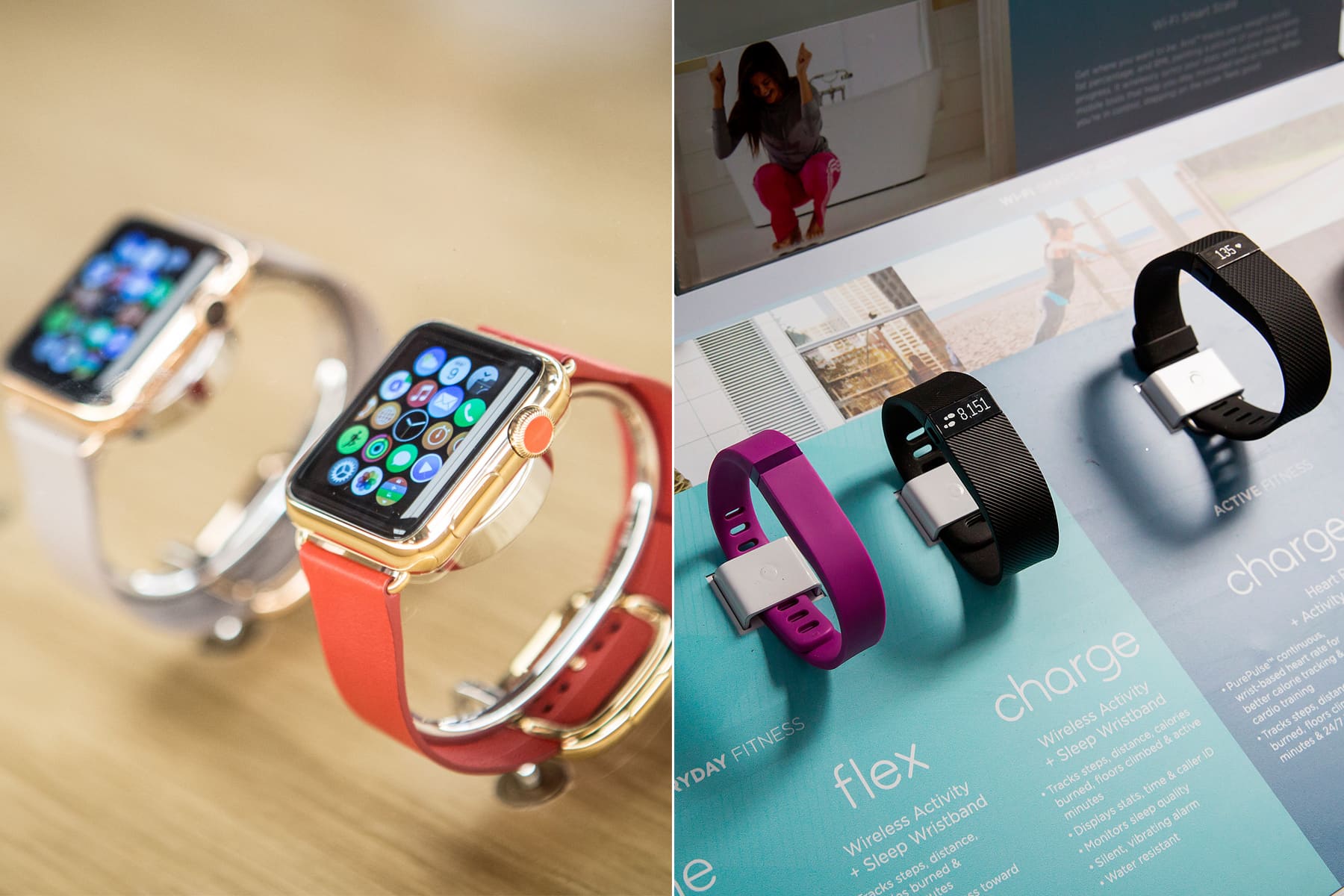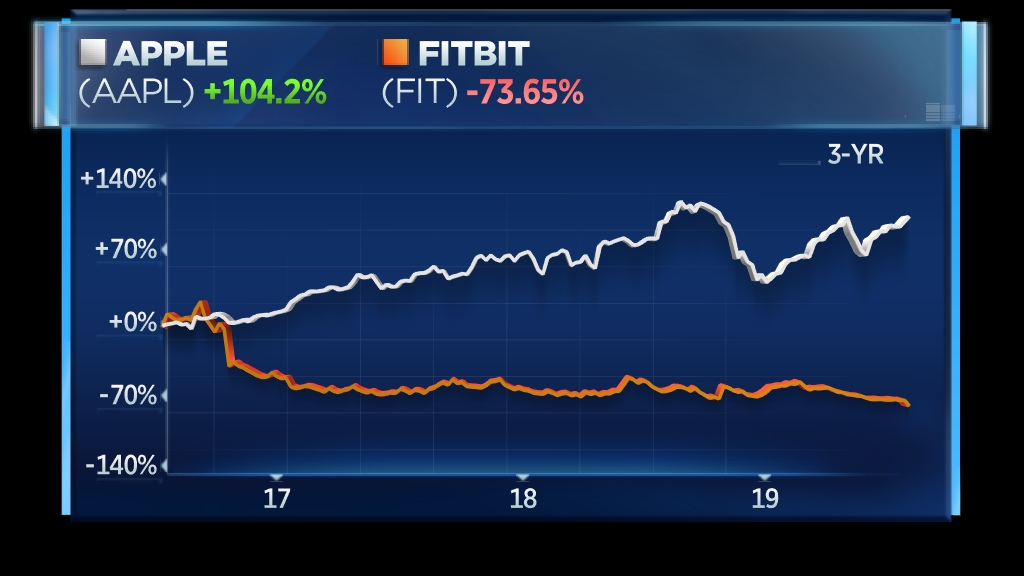
Apple Watches (L) and Fitbit (R).
Getty Images
On Tuesday's earnings call, Apple CEO Tim Cook commended his company for sticking with wearables "when others perhaps didn't."
A day later, Fitbit CEO James Park struck a very different tone, telling investors in a press release that "we are disappointed to lower guidance for the year."
Apple shares climbed 2.6% on Wednesday, closing at their highest mark this year. Fitbit shares closed at a record low on Wednesday and then plunged more than 15% in extended trading after the smartwatch maker's earnings report.
It's a tale of two companies told over the course of 24 hours. Apple is the icon of the consumer electronics business, having parlayed its dominance in smartphones into a market-leading position in watches by keeping people in its ecosystem. Fitbit is the challenger that innovated in fitness tracking and built a solid business before getting steamrolled by the industry superpower as it moved into more advanced smartwatches.
Apple's wearable business, which includes AirPods, Apple Watch and Beats headphones, recorded 48% growth in the quarter from a year earlier to $5.53 billion and CFO Luca Maestri said the category's growth is accelerating over 50%.
Fitbit's sales grew only 4.8% in the quarter to $313.6 million.

At the end of 2018, Apple controlled 50% of the global smartwatch market in terms of units shipped, according to Strategy Analytics. Fitbit was second at 12.2%, followed by Samsung, which sells Android-powered devices, at 11.8%.
In its effort to stay competitive, Fitbit has been slashing prices, which resulted in a shrinking of its gross margin, or the profit left after subtracting costs of goods sold, to 34.5% from 39.8%.
Fitbit cited weaker-than-expected sales of its Versa Lite device, a lightweight smartwatch that it introduced earlier this year, for its disappointing numbers and lowered the midpoint of its revenue guidance for 2019 to $1.46 billion from $1.56 billion.
Following its after-hours plunge, Fitbit is now worth less than $1 billion. It has lost 82% of its value since its IPO in 2015.
Park is trying to reduce his company's reliance on device sales and focus more on premium services, which will create a "longer lasting relationship with users while changing perception of products and services from a nice to have to need to have," the CEO said on Wednesday's earnings call.
But Apple is doing that, too, with a much wider swath of services that work across many different types of devices. Revenue in Apple's services business, which includes the App Stores, Apple Care, Apple Pay, iCloud and Apple Music, increased 13% to $11.46 billion in the quarter.
WATCH: Fitbit CEO James Park talks about innovation at an affordable price
0 Comments